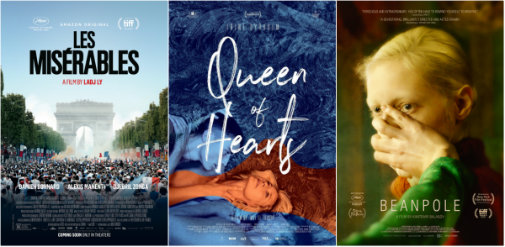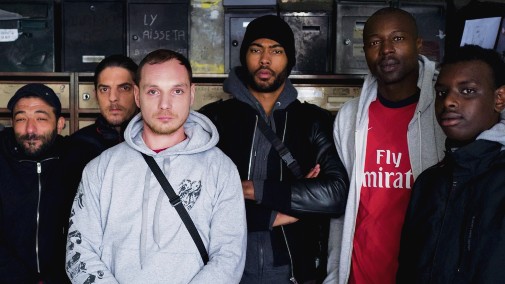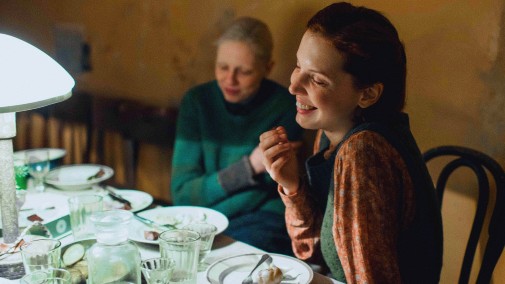by Cláudio Alves

In ten days we'll know the Best International Feature shortlist of ten. In previous years, there were only nine finalists but, due to rule tweaking, the list has been expanded to ten titles. As usual, expect to see a lot of European productions since this category loves to reward the cinema of the Old Continent. Thinking of those preferences, I've decided to group the submissions of three European champions of the past.
Specifically, they are France, with nine competitive wins and three honorary awards uner their belt; Denmark, with three victories; and Russia, which won once (or four times if you count the USSR's wins). We'll start with the most-nominated country in the category's History…

LES MISÉRABLES (France)
Ladj Ly's latest feature is very blunt, sometimes to its detriment but often to its benefit. It tells a tightly structured story of social strife and racial tensions in modern-day France, centering itself around the experiences of a country cop recently arrived in Paris. Many of Ly's decisions are perplexing, especially as a screenwriter, and I can't stress enough how much I question his choice of protagonist. However, when that aforementioned bluntness collides with a palpable sense of rage, it's as if someone lit fireworks in the movie theatre and all concerns are set aside. The last act is a particular marvel, letting Victor Hugo's influence mix with a miasma contemporary indignation. This glorious fusion of sensibilities results in a concoction of pure cinema that burns and galvanizes. I only wish the director had rethought his script, foregrounding the marvelous work of such actors as the young Issa Perica and the solemn Almamy Kanouté. B/B-

QUEEN OF HEARTS (Denmark)
One person's story of sexual liberation can be another's nightmare of abuse. It's unfortunately usual to hear such stories about men in power using their influence over women to violate them. May el-Toukhy's latest film is all about perverse power dynamics and abusive relationships, but the Danish director cunningly changes the expected paradigms for this type of story. Most notably, the monster in her tale is a woman who's putatively dedicated her life to defending the rights of abused individuals. Anne is a successful lawyer, a charming wife and nurturing mother who doesn't bat an eye at the need to take care of her husband's troubled teenaged son from another marriage. What happens when she starts to realize how much influence she holds over this volatile young man, however, is a spectacle of unethical seduction and blatant gaslighting. The film's modernist veneer slowly reveals itself as a cage of cold cruelty and Trine Dyrholm's deft performance illuminates this monster's sharp intelligence without allowing us to see into her soul. It's a risky feat of deliberately opaque characterization and the sort of acting that demands admiration and deserves endless applause. B+

BEANPOLE (Russia)
War is hell, but what comes after isn't any better. Not always. The scars are slow to heal and the phantom pains can drive you mad when the fire of battle kept you sane. What little morsels of innocence survive this apocalypse are treasured, but their fragility often dooms them to early ends. When the last light dies and happiness seems like a faraway dream, then another war takes place. It's a war of emotions and broken minds, corrupted souls and desperate women. They're desperate to eat, to breathe, desperate to feel life growing inside them and to twirl in flowy green dresses. When war tears you apart and robs you of your purpose, shatters you beyond repair, how do you go on? Kantemir Balagov's breakout feature is a beautiful nightmare where such questions drip from decoupages of rotten wallpaper and trembling women with skin the color of snow. It's a horrid affair, but its feelings lacerate and refuse to be ignored. Watching Beanpole hurts, but from that hurt comes a whisper of catharsis, a last ray of hope, a hug that doesn't leave you, not even after you have long left the theatre, its ghostly embrace haunting you in perpetuity. A
Of these three, I'd say Les Misérables is the one most likely to appear in the shortlist. I'd like to think Beanpole's masterfulness would assure a place among the finalists, but I doubt it. Regarding Queen of Hearts, I think its controversial themes and non-simulated sex scenes will keep it far away from Oscar.